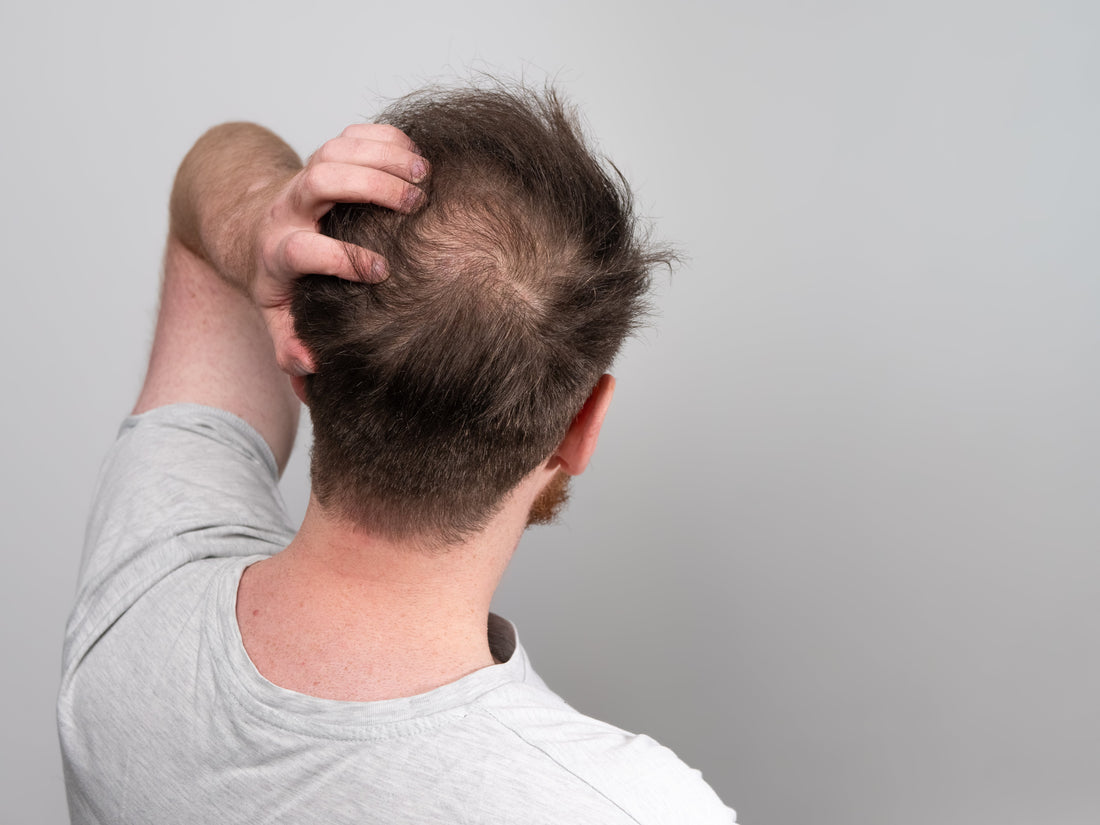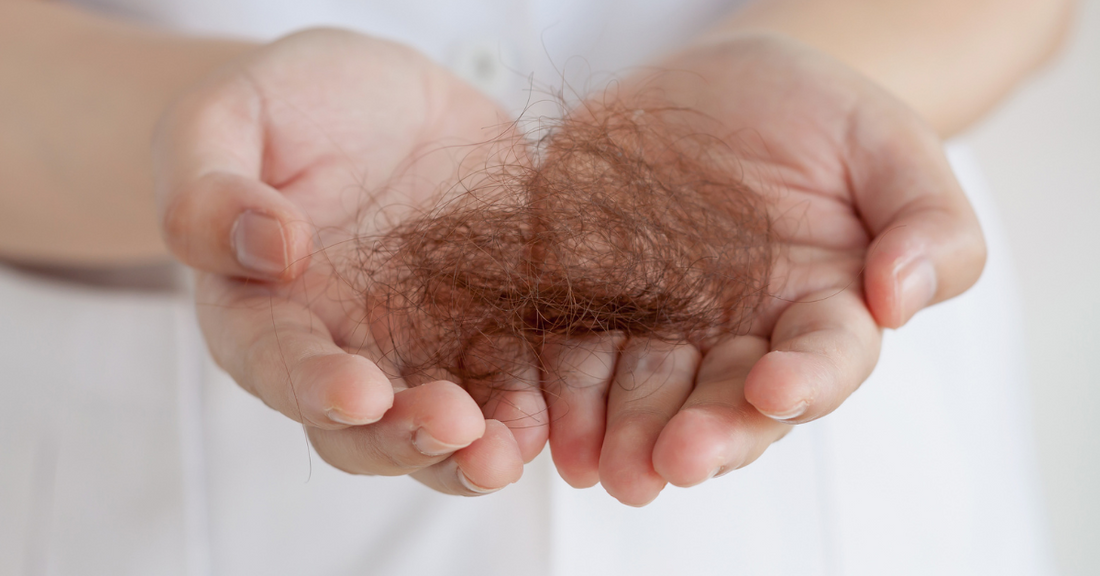Did you know a majority of your hair follicles are continually in the phase, called anagen? This means your scalp continually produces new hair. About 10 – 15% of your hair sits in a resting phase called telogen. The resting phase only lasts a short while (no longer than 4 months), while the anagen phase lasts up to four years.
Hair in the telogen phase eventually falls out. On average, we lose 100 hairs a day, and that’s natural.
When you lose more than 100 hairs a day, you may experience telogen effluvium. While this condition doesn’t cause immediate or sudden baldness, it does cause an increase in hair loss of about 30%. Rather than 100 hairs in a day, you may lose 300 hairs.
What Causes Telogen Effluvium?
Telogen Effluvium usually results from trauma to the body. A few examples include:
- Pregnancy
- Physical trauma from a car accident
- Major surgery
- Certain medications, such as anti-depressants and birth control pills
- Nutrient deficiency (iron and B vitamins)
- Sudden weight loss
How is Telogen Effluvium Different from Male and Female Pattern Hair Loss?
Unlike male and female pattern hair loss, telogen effluvium isn’t hereditary. Men and women with male and female pattern hair loss typically have a family history of it. Telogen effluvium is sudden and due to something extreme in your life, such as drastic hormone changes, trauma, or extreme physical changes, such as an extreme diet resulting in nutrient deficiency.
Telogen Effluvium is temporary whereas male and female pattern baldness may last long-term without effective treatment.
How to Prevent Telogen Effluvium
Telogen Effluvium results from sudden and extreme trauma. Since you can’t predict if /when that may happen, the best way to prevent telogen effluvium is to take care of your body, which naturally means you take care of your hair.
- Eat a balanced diet – Your diet should include lean proteins and plenty of fruits and vegetables. Try eating the colors of the rainbow to get as many nutrients as possible daily. If you don’t get adequate nutrients, consider taking supplements.
- Get 8 hours of sleep – Your body needs adequate sleep to regulate your hormones. When you don’t sleep enough, your stress hormone, cortisol increases, which causes havoc throughout your body. If you don’t need 8 hours of sleep a night, get as much as your body requires to ‘feel good.’
- Manage your stress – Aside from getting enough sleep, your body needs ways to stay calm, even in times of stress. Practice self-care by doing nice things for yourself, making sure you have someone to talk to, exercising, and doing things that make you happy.
- Talk to your doctor about medications – If you take any medications and notice TE, talk to your doctor about switching medications
How to Treat Telogen Effluvium
Fortunately telogen effluvium doesn’t last forever, and the faster you take care of yourself, the faster it may reverse itself. Because telogen effluvium results from trauma, taking care of your stress is vital. Everyone undergoes stress, but it’s how you let it affect your body that determines if you experience hair loss or not. Just because someone experiences stress, doesn’t mean they’ll automatically lose their hair. But, if that person doesn’t take care of their body and their mind, it’s a real possibility.
Treating Telogen Effluvium is similar to preventing it – take care of your body:
- Eat right
- Exercise
- Reduce your stress using stress management techniques
- Finally, be easy on your hair. Avoid excessive chemicals (coloring or highlighting) and avoid excessive pulling or heat, including blow-drying or straightening your hair until the telogen effluvium subsides.
Telogen Effluvium is surprisingly common, but if you take care of yourself and your hair, it can be avoided. No one likes to see their hair falling out, but with telogen effluvium, it’s temporary and reversible. Start today taking care of your body, preparing it for any trauma that may occur, and you should be able to dramatically reduce the risk of telogen effluvium.







